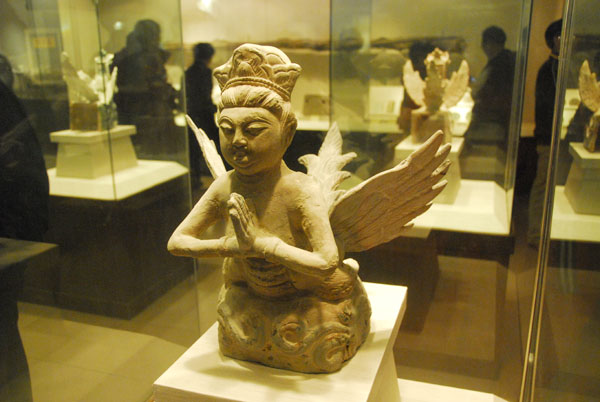A lost people
 |
|
The 670 artifacts on display at the Western Xia Museum trace the ethnic group's anthropological evolution through its power spike. Zhang Bo / For China Daily |
These trace the ethnic group's anthropological evolution through its power spike, starting with its abandonment of nomadic life, and early adoption of Tang songs and legal systems. It later absorbed elements of the Liao and Song dynasties, and the Tibetan and Uygur ethnicities.
|
|
But some indigenous traditions persisted. Men shaved their heads, aside from pigtails on the sides and one ponytail rising from the crown in deliberate contrast to the Han.
The defiant were beheaded. The decree was: "Lose your hair and keep your head, or lose your head and keep your hair."
It's unsurprising given the expansionist ambitions of the Western Xia and its neighbors that many of the museum's relics are of military origin. The empire was born, lived and died by the sword.
Among the expectable arrowheads, spears and helmets are a studded porcelain grenade and one of only two sets of chain mail from the period.
Next to the museum is a courtyard filled with scaled-down replicas of the original mausoleums. The side halls display wax-statue recreations of tales from the empire's rise to its demise.
Though inanimate - even cheesy - these mannequin scenes breathe some life into the story of an empire that disappeared along with most of its people - one that's only now resurfacing as archaeologists sift through the sands of its time.
Contact the writer at erik_nilsson@chinadaily.com.cn.















